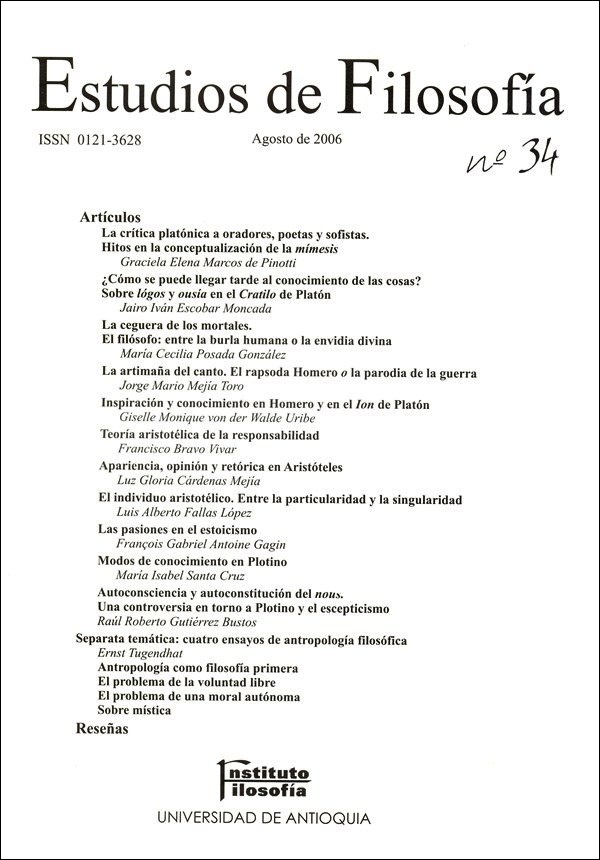The problem of free will
DOI:
https://doi.org/10.17533/udea.ef.12802Keywords:
Will, freedom, moral, KantAbstract
The problem of free will is not whether it exists or not, but what it consists of. According to a popular opinion, free will is being able to do what one wants. For example, I can now, if I want, raise my hand. Two observations can be made in relation to that opinion. First: that the action depends on my will is not freedom of will, but of action, Second: it has recently been shown in brain physiology that every time one wants to move his hand, this act of the will is anticipated a fraction of a second by a movement in the brain. But even if that were not so, we would have to assume that the act of the will is determined by psychological antecedents, 'the alternative being that the person produces the act of will magically from nothing.
Downloads
Downloads
Published
How to Cite
License
Copyright (c) 2006 Ernst Tugendhat

This work is licensed under a Creative Commons Attribution-NonCommercial-ShareAlike 4.0 International License.
Authors who publish with this journal agree to the following terms:
1. The Author retains copyright in the Work, where the term "Work" shall include all digital objects that may result in subsequent electronic publication or distribution.
2. Upon acceptance of the Work, the author shall grant to the Publisher the right of first publication of the Work.
3. The Author shall grant to the Publisher a nonexclusive perpetual right and license to publish, archive, and make accessible the Work in whole or in part in all forms of media now or hereafter known under a Creative Commons Attribution-NoCommercia-ShareAlike (CC BY-NC-SA 4.0), or its equivalent, which, for the avoidance of doubt, allows others to copy, distribute, and transmit the Work under the following conditions: (a) Attribution: Other users must attribute the Work in the manner specified by the author as indicated on the journal Web site;(b) Noncommercial: Other users (including Publisher) may not use this Work for commercial purposes;
4. The Author is able to enter into separate, additional contractual arrangements for the nonexclusive distribution of the journal's published version of the Work (e.g., post it to an institutional repository or publish it in a book), as long as there is provided in the document an acknowledgement of its initial publication in this journal;
5. Authors are permitted, and Estudios de Filosofía promotes, to post online the preprint manuscript of the Work in institutional repositories or on their Websites prior to and during the submission process, as it can lead to productive exchanges, as well as earlier and greater citation of published work (see The Effect of Open Access). Any such posting made before acceptance and publication of the Work is expected be updated upon publication to include a reference to the Estudios de Filosofía's assigned URL to the Article and its final published version in Estudios de Filosofía.















